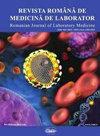新型冠状病毒感染对急性白血病患者病情发展及预后影响的评价
IF 0.5
4区 医学
Q4 MEDICINE, RESEARCH & EXPERIMENTAL
引用次数: 1
摘要
摘要简介:covid - 19是世界上最大的流行病之一。自2019年12月至今,冠状病毒已感染超过1.31亿人。一般人群的死亡率在1%至5%之间,肿瘤患者的死亡率可能超过30%。方法:本研究主要目的是了解急性白血病合并COVID-19患者的演变、并发症和治疗的一些特点。该研究是回顾性的,包括50例急性白血病和COVID-19患者。结果:20例急性髓母细胞白血病患者和4例急性淋巴母细胞白血病患者近期接受化疗。新诊断患者或接受强化化疗的患者,特别是老年患者,其COVID-19形式严重且病情发展不利,这些临床情况被确定为不良结局的预测因素。与急性髓母细胞白血病患者相比,急性淋巴母细胞白血病患者的生存曲线更短。急性髓母细胞性白血病患者尤其存在肺炎,大多数患者有超过30%的肺野受到影响(55.26%)。预后不良的患者c反应蛋白、降钙素原和白细胞介素的中位数显著升高。结论:诊断为COVID-19感染的急性白血病患者,特别是急性髓母细胞白血病患者需要特别关注,因为他们可能与COVID-19的并发症和不良结局有关。我们获得的结果需要在更大的患者群体中进行评估,并在COVID-19后的随访期间进行分析。本文章由计算机程序翻译,如有差异,请以英文原文为准。
Evaluation of the impact of Covid-19 infection on the evolution and prognosis of patients with acute leukaemia
Abstract Introduciton: COVID19 is one of the largest pandemics. Since December 2019 until now the coronavirus has infected over 131 million people. The mortality rate in the general population varies between 1 to 5%, with a potential of over 30% in patients with neoplasms. Methods: The main objective of the study was to identify some peculiarities of the evolution, complications and treatment of patients with acute leukaemia and COVID-19. The study was retrospective and included 50 patients with acute leukaemia and COVID-19. Results: Recent administration of chemotherapy was identified in 20 patients with acute myeloblastic leukaemia and 4 patients with acute lymphoblastic leukaemia. The newly diagnosed patients or those undergoing intensive chemotherapy, in particular elderly patients, had a severe form of COVID-19 and an unfavourable evolution, and these clinical situations were identified as predictive factors for adverse outcomes. Patients with acute lymphoblastic leukaemia had a shorter survival curve compared to patients with acute myeloblastic leukaemia. Pneumonia was present especially in patients with acute myeloblastic leukaemia, most patients having over 30% of lung fields affected (55.26%). Patients with an unfavourable outcome had significantly increased median values of C-reactive protein, procalcitonin and interleukin6. Conclusions: Patients with acute leukaemia, especially acute myeloblastic leukaemia who have been diagnosed with COVID-19 infection require special attention because they may associate complications and adverse outcomes of COVID-19. The results we obtained require evaluation in a larger group of patients and analysis in the follow-up period after COVID-19.
求助全文
通过发布文献求助,成功后即可免费获取论文全文。
去求助
来源期刊

Revista Romana De Medicina De Laborator
MEDICINE, RESEARCH & EXPERIMENTAL-
CiteScore
0.31
自引率
20.00%
发文量
43
审稿时长
>12 weeks
期刊介绍:
The aim of the journal is to publish new information that would lead to a better understanding of biological mechanisms of production of human diseases, their prevention and diagnosis as early as possible and to monitor therapy and the development of the health of patients
 求助内容:
求助内容: 应助结果提醒方式:
应助结果提醒方式:


